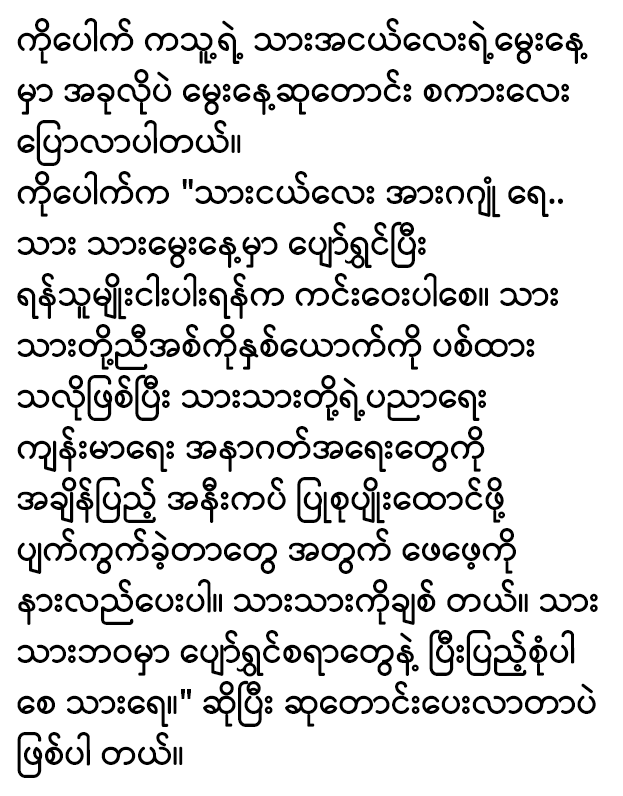








In an era of rapid technological advancement, the integration of blockchain technology into digital voting systems has emerged as a promising solution to enhance the integrity of elections worldwide. With concerns over traditional voting methods such as ballot tampering, voter fraud, and hacking, blockchain offers a secure and transparent alternative that could revolutionize the electoral process. But what exactly is blockchain, and how does it improve the integrity of digital voting systems? Let’s delve deeper into this transformative technology and explore its implications for the future of democracy.
Understanding Blockchain: The Backbone of Digital Voting
What is Blockchain?
Blockchain is a decentralized, distributed ledger technology that enables secure and transparent record-keeping of transactions across a network of computers. Each transaction, or “block,” is cryptographically linked to the previous one, forming a chronological chain of blocks. This immutability and transparency make blockchain an ideal solution for recording and verifying votes in digital voting systems.
How Does Blockchain Work in Digital Voting?
In the context of digital voting, blockchain serves as a tamper-proof digital ledger that records each vote cast in an election. When a voter submits their ballot electronically, the transaction is recorded as a block on the blockchain network. Once recorded, the vote cannot be altered or deleted, ensuring the integrity of the electoral process. Additionally, blockchain’s decentralized nature reduces the risk of a single point of failure or manipulation, as the entire network validates and verifies each transaction.
Benefits of Blockchain in Digital Voting
- Enhanced Security: Blockchain employs advanced cryptographic techniques to secure transactions, making it nearly impossible for malicious actors to alter or tamper with votes.
- Transparency and Auditability: The transparent nature of blockchain allows for real-time verification of votes by stakeholders, including voters, election officials, and independent observers. This transparency enhances trust in the electoral process and facilitates post-election audits to verify the integrity of the results.
- Immutable Record-Keeping: Once recorded on the blockchain, votes are immutable and cannot be changed retroactively. This eliminates the risk of fraud or manipulation, ensuring the accuracy and integrity of election outcomes.
Challenges and Considerations in Implementing Blockchain for Digital Voting
Scalability Issues
One of the primary challenges in implementing blockchain for digital voting is scalability. As the number of voters and transactions increases, so does the size of the blockchain, leading to potential performance issues and slower transaction processing times. Addressing scalability concerns requires innovative solutions such as sharding, sidechains, or off-chain protocols to optimize the efficiency of the voting system while maintaining security and integrity.
Identity Verification
Ensuring the identity and eligibility of voters in a digital voting system is crucial to prevent fraudulent activities such as double voting or impersonation. Blockchain-based identity verification solutions, such as digital signatures or biometric authentication, can enhance the security and trustworthiness of the electoral process. However, implementing robust identity verification mechanisms while preserving voter privacy remains a complex challenge that requires careful consideration and adherence to privacy regulations.
Accessibility and Inclusivity
While blockchain technology holds the potential to enhance election integrity, it must also address concerns related to accessibility and inclusivity. Not all voters may have access to the necessary technology or internet connectivity to participate in digital voting, potentially disenfranchising certain demographics. To ensure equitable access to the electoral process, governments and election authorities must implement measures to accommodate diverse voting preferences, including traditional paper ballots alongside digital voting options.
Case Studies: Real-World Applications of Blockchain in Digital Voting
Estonia: A Pioneer in E-Voting
Estonia has been at the forefront of digital innovation in governance, with its pioneering e-voting system utilizing blockchain technology since 2005. Estonian citizens can securely cast their votes online using their national ID cards, which are equipped with cryptographic chips for authentication. The blockchain-based system has been lauded for its security, efficiency, and convenience, with a significant portion of the population regularly participating in e-voting during elections.
West Virginia: Blockchain-Based Mobile Voting
In 2018, West Virginia became one of the first U.S. states to pilot a blockchain-based mobile voting app for overseas military personnel in the midterm elections. The app, developed by Voatz, allowed eligible voters to securely cast their ballots using their smartphones, with the votes recorded on a private blockchain network. While the pilot project faced scrutiny and criticism over security concerns, it highlighted the potential of blockchain technology to facilitate remote and accessible voting options for marginalized communities.
The Future of Democracy with Blockchain for Digital Voting
Blockchain technology holds immense promise for enhancing the integrity, security, and accessibility of digital voting systems worldwide. By leveraging blockchain’s decentralized architecture, cryptographic security, and transparent record-keeping capabilities, governments and election authorities can instill greater trust and confidence in the electoral process. However, realizing this vision requires addressing challenges related to scalability, identity verification, and inclusivity, while also ensuring compliance with legal and regulatory frameworks. As we continue to innovate and evolve in the digital age, blockchain for digital voting stands as a beacon of hope for safeguarding democracy and ensuring that every voice is heard, loud and clear.